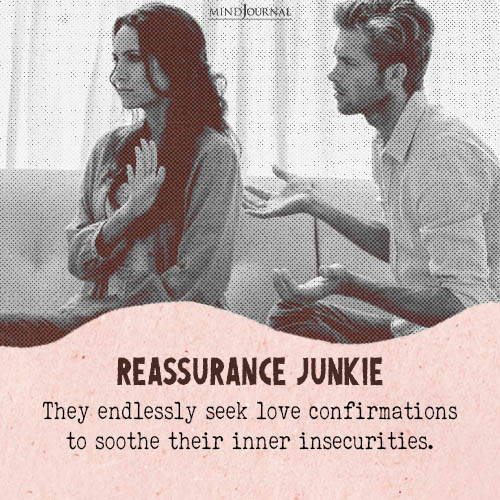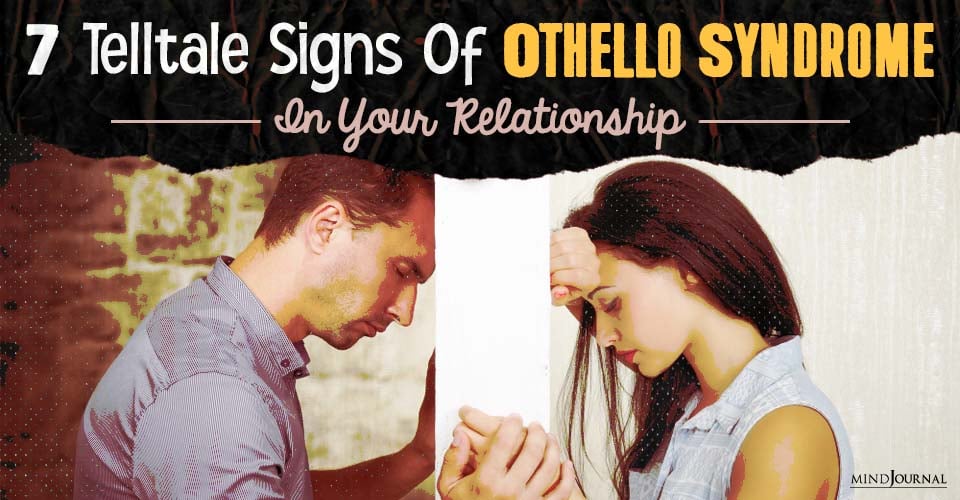A small amount of jealousy is normal in any relationship. Some find it an indication of love, but there exists a deeper, more intense feeling that can disrupt peace of mind: Othello Syndrome.
Some may experience a sinking feeling in their stomach when their partner spends time with their friends, despite assurances. They find themselves obsessively checking their partner’s phone or social media accounts.
So, What Is Othello Syndrome?
This psychiatric condition is a form of morbid or pathological jealousy that can dominate thoughts and actions. It leads a person to make repeated accusations on their partner or spouse, believing that they’re cheating on them, based on insignificant evidence.
This type of jealousy is not fleeting or trivial, it is an all-consuming obsession named after Shakespeare’s tragic character, whose doubts and mistrust led to his downfall,
Below are seven signs of othello syndrome. It will reveal how this relentless mental health condition manifests and that someone you know or love might be dealing with it.
Read More Here: Revealing the Mask: Top 7 Indicators of Unhealthy Jealousy

7 Signs Of Othello Syndrome Symptoms
1. Obsessively Checking Their Partner’s Phone

While this might be a common practice in today’s generation, there are some people who might compulsively check their partner’s messages, photos, or social media accounts.
Each new notification on their partner’s phone can induce a rush of anxiety. They see who liked their partner’s picture or who has followed them.
Despite promising themselves to stop, curiosity often overpowers. But they need to confirm their worst suspicions.
2. Constant Doubts About Their Fidelity

A person experiencing othello syndrome symptoms often harbors frequent doubts about their partner’s fidelity. Regardless of repeated reassurances or evidence of trustworthiness, their mind persistently gravitates towards suspicion.
This isn’t just a fleeting concern—it becomes a persistent, gnawing worry that occupies their thoughts daily.
3. Becoming Overly Controlling

People with the signs of othello syndrome, might attempt to control their partner’s actions, whether subtly or overtly. Like calling or texting and inquiring about where their partner is going, who they are with, or how long they will be gone.
Sometimes it’s normal but when this happens regularly, this behavior is driven not by protection but by a deep-seated fear of losing control. They need to have complete information that feels necessary to quell their anxiety.
4. Intense Need for Reassurance

“Do you love me?” or “Are you sure I’m the only one?” The frequency of these questions signals a deeper emotional turmoil that goes beyond normal insecurities.
Those affected may have an overwhelming need for constant reassurance of their partner’s love and commitment. Such questions aren’t one-time requests but a habit.
5. Creating Scenarios In Their Head

It is common for someone with Othello Syndrome symptoms to mentally script elaborate scenarios involving their partner. They might imagine far-fetched situations like their partner is cheating on them during a casual dinner with friends.
Even a simple text from a colleague can spiral into a narrative about potential infidelity, consuming their thoughts without any basis.
6. Jealousy Towards Innocent Interactions

Innocuous interactions, such as a friendly chat or professional exchange, can trigger intense jealousy in someone.
Even without any substantial reason, they may feel threatened by their partner’s communication with others, perceiving every interaction as a potential risk to their relationship.
7. Feeling Extreme Paranoia or Anxiousness

Anxiety and paranoia are common among those suffering from this syndrome, especially when separated from their partner.
This unease can escalate into pervasive suspicion, making it difficult to shake the feeling that something is amiss. The resulting anxiety can become all-consuming, affecting other aspects of their life.
Read More Here: 8 Ways Jealousy Harms Your Relationships
If you’re recognizing some of these signs in yourself, it might be time to pause and reflect on your feelings. If left unchecked, Othello Syndrome symptoms can harm not only an individual’s mental health but also the relationship they are so concerned about.
Seek help and try to restore peace of mind. Find healthy ways to cope when it becomes overwhelming.
Share your thoughts in the comments below!










Leave a Reply